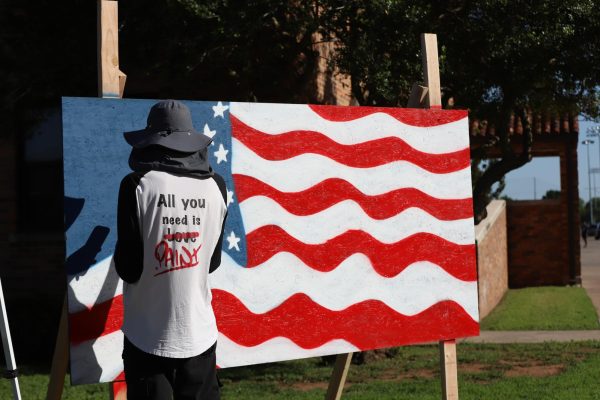OPINION: Are students getting dumber?
Post-pandemic, several studies have shown students across age groups are significantly behind in their class. Photo courtesy of Pexels.
*Columns are the opinions of their respective authors and do not necessarily reflect the views of The Wichitan as an organization.*
The question of students getting dumber over the years has long swirled around the world of academia. However, the recent termination of a New York University organic chemistry professor for his class being too hard has triggered a storm of conversations and debates about this topic.
Maitland Jones Jr., a distinguished professor in the field of organic chemistry previously worked at Princeton before retiring in 2007 and moving on to work for the NYU on a contract. Jones who was once recognized as NYU’s coolest professor lost favor with members of the student body after his class was deemed too difficult. Last spring 82 of the 350 students in his class filed a petition against him.
In an attempt to placate the students affected , the NYU officials fired Jones, which inevitably spurred a debate within the Chemistry department of NYU, the student body and the world of academia. The student body is currently split between pro- Jones supporters and those in support of his termination.
In the wake of this debate, there are a few undeniable issues to be considered. There is the impact COVID-19 had on students mentally and emotionally, the pressure universities face as they try to educate the Gen Z student population, the issues that become highlighted when there is a major gap in age between students and their teachers and the perceived lack of rigor in the new generation of students.
It is no secret that after the COVID-19 pandemic higher education institutions have struggled with providing college students with the resources they need. This is in part because the pandemic was an unanticipated catastrophe that impacted the whole world and because, like many other education systems in the world, the American education system was unprepared and now has to deal with the impact of the pandemic on education.
Post-pandemic, higher education professors around the country have noticed a downward spiral in the grades of students which is being attributed to the COVID learning loss. Jones deemed this as one of the problems impacting his students and accredited some portion of his student’s faulty comprehension abilities to this problem. In an interview Jones stated that the problem was not only that the “students didn’t study, they didn’t seem to know how to.”
In his statement to NYU contesting his termination, he highlighted that “students were misreading examination questions at an astonishing rate”. This is no small issue; how can students answer questions they don’t understand? Regardless of the time or effort spent studying, the lack of comprehension of exam questions leads to the student failing because they answered the exam question incorrectly.
This highlights the question that most universities are now considering which is “What are we doing wrong?” Across the country, higher education institutions are shuffling around and trying to figure out how to properly educate the Gen Z population. Why is this such a big problem you might ask? It is because of the various ways the lifetime of the Gen Z population has been impacted by major advances in technology, major social changes regarding discrimination, equity and representation within our society, and the effect of the pandemic. The Gen Z population had a chunk of their lives displaced by the pandemic – a phase most people consider crucial to psychological development – and the pandemic faded the resilience of most young adults and left the population saddled with huge bouts of anxiety and depression.
Almost three years after the pandemic hit, the Gen Z population is still saddled with a lot of social anxiety, test anxiety, issues with mental health and depression and emotional exhaustion from the last few years. This has impacted their relationship with academics, school and life in general.Universities now have the task of educating a population that is in no way shaped up for the rigors that our predecessors passed through while they were in the university education system. This leaves higher education institutions constantly second-guessing their opinions and decisions around the people who currently make up their student body.
Another issue that leaves no room for progress on this issue is the fact that our generation is being educated by people who can in no way relate to us, our struggles and the impact the last three years have had on the Gen Z population. Jones is 84 years old, teaching a room of students that are over 50 years younger than he is, that alone represents five decades of the distance between the thought process, conceptualization and comprehension ability of him and his students. These factors serve as a barrier to in-class communication and hinder active learning within the classroom.
The truth about this situation is that the times have changed, and the education system is failing its students by not considering adapting to the teaching and learning needs of students. Students don’t only want curves on their grades, they want to learn and the education system can help by continuing to provide resources to assist students. As time goes on, the hope is that students will recover from the incidents of the last three years and make an attempt at becoming better students and developing their cognitive abilities. Recovering from these incidents will not be an easy feat; however we cannot make progress without trying.



















